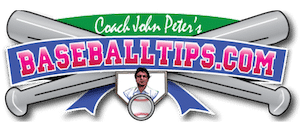This comprehensive guide provides baseball players with a structured off-season workout plan requiring minimal equipment, focusing on strength, agility, and skill development to improve performance for the upcoming season.
_______________________________
How to Create an Effective Baseball Off-Season Workout Plan with Minimal Equipment
The off-season is where championships are truly won in baseball. Without the daily grind of games and practices, players have a golden opportunity to build strength, improve mechanics, and address weaknesses. But you don’t need a professional training facility to make significant gains. This guide will show you how to create a complete baseball off-season workout plan using just a few pieces of essential equipment.
Why Your Off-Season Training Matters
The months between seasons aren’t just downtime—they’re your chance to gain a competitive edge. Players who treat the off-season seriously return stronger, faster, and more skilled than those who don’t. With just a few basic tools and a consistent approach, you can transform your game without breaking the bank.
At BaseballTips.com, we’ve worked with thousands of players since 1999, and we’ve learned that effective training doesn’t always require expensive equipment. What matters most is smart programming and dedication.
Essential Equipment for Off-Season Training
You don’t need a professional facility to get professional results. Here’s the minimal equipment needed for a complete baseball workout plan:
Strength Training Basics
A pair of adjustable dumbbells, resistance bands, and a medicine ball can replace an entire gym for baseball-specific strength work. These versatile tools allow you to target the rotational power and explosive movements that translate directly to better performance on the field.
Hitting Development Tools
A tee, a few baseballs, and a hitting net can provide endless opportunities for swing refinement. The batting tee remains one of the most underutilized yet effective training tools in baseball. It allows you to focus on specific parts of your swing without the variables of pitched balls.
Conditioning Equipment
A jump rope, agility ladder, and cones are all you need for baseball-specific conditioning. These simple tools help develop the quick-twitch muscle fibers and change-of-direction abilities that separate good players from great ones.
Building Your 12-Week Off-Season Program
The most effective off-season plans follow a progressive structure that builds throughout the winter months. Here’s how to organize your training:
Weeks 1-4: Foundation Phase
Start with general strength building and mobility work. Focus on establishing proper movement patterns and correcting imbalances from the previous season. This is where you’ll build the foundation that supports more intense training later.
Three full-body strength sessions per week with your dumbbells and resistance bands will develop the base strength needed. Add two mobility-focused sessions to improve range of motion in the hips, shoulders, and thoracic spine—critical areas for baseball performance.
Weeks 5-8: Power Development Phase
Now that you’ve built a base of strength, transition to more explosive, rotational movements that mimic baseball actions. Your medicine ball becomes crucial here for developing the hip-to-shoulder separation that generates bat speed and throwing velocity.
Incorporate medicine ball rotational throws, resistance band rotational exercises, and plyometric movements with your agility ladder. This is also when you should increase your tee work, focusing on mechanical efficiency.
Weeks 9-12: Sport-Specific Phase
The final phase brings everything together with training that directly mimics game situations. Your conditioning becomes more interval-based to replicate the stop-and-start nature of baseball. Strength training maintains the gains you’ve made while adding velocity to your baseball movements.
Hitting work should now include various drills that address different pitch locations and situations. Your previous focus on mechanics now transitions to application.
Sample Weekly Schedule
Monday: Full Body Strength + Hitting
Use your dumbbells and resistance bands for a complete strength circuit, followed by focused tee work on specific swing mechanics.
Tuesday: Agility + Throwing
Ladder drills, cone work, and medicine ball exercises develop the quick-twitch fibers needed for baseball, paired with a progressive throwing program.
Wednesday: Active Recovery
Light mobility work and soft tissue maintenance help your body recover while maintaining activity levels.
Thursday: Power Development + Hitting
Medicine ball throws and explosive movements with bands target rotational power, followed by more advanced hitting drills.
Friday: Full Body Strength + Conditioning
Another strength session paired with interval conditioning to build baseball-specific endurance.
Saturday: Game-Simulation Training
Combine all elements into workout circuits that mimic game situations and energy systems.
Sunday: Complete Rest
Allow your body to recover fully before beginning the next week’s training.
Tracking Progress and Making Adjustments
The most effective training programs include regular assessment. Every four weeks, test yourself on key metrics like medicine ball throw distance, sprint times, and swing metrics if you have access to basic measurement tools. This data tells you whether your program is working or needs adjustment.
Remember that consistency trumps perfection. A simple program you follow religiously will produce better results than an elaborate one you can’t maintain.
Ready to Transform Your Game This Off-Season?
At BaseballTips.com, we’ve helped players at every level develop effective training programs with minimal equipment. Whether you’re looking for quality training tools or expert guidance, we’re here to support your baseball journey.
Contact our team at 1-800-487-7432 (Monday-Friday, 10am-7pm EST) for personalized advice on selecting the right training equipment for your off-season program. With the right plan and minimal but quality equipment, you’ll return next season as the player everyone’s wondering about.
